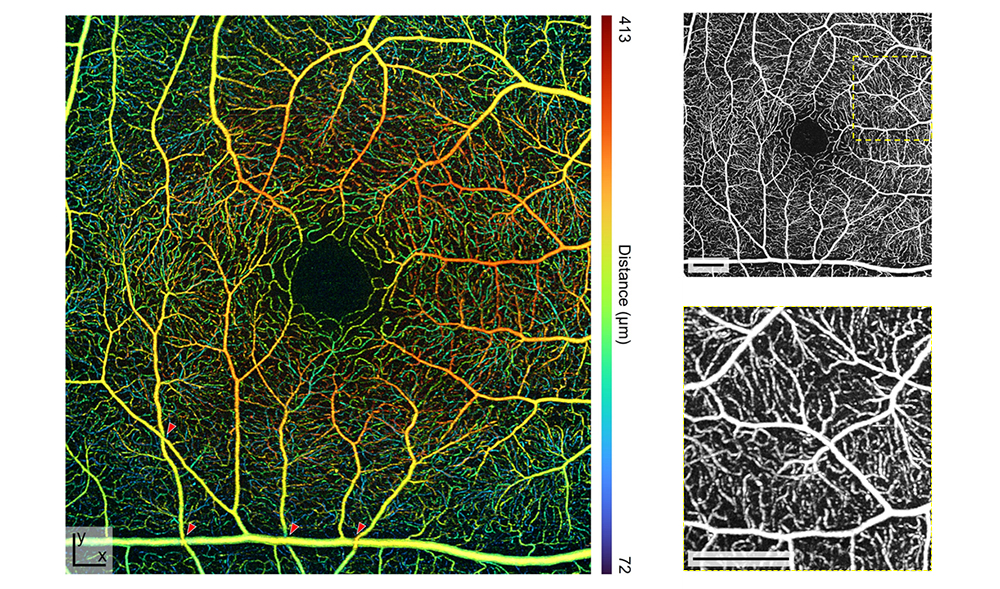
Phase-Locked Time-Stretch Optical Coherence Tomography for Contrast-Enhanced Retinal Microangiography

Optical coherence tomography angiography has transformed retinal vascular imaging by providing non-invasive, high-resolution visualization. However, achieving an optimal balance between field of view, resolution, and three-dimensional microvasculature contrast, particularly in deeper retinal layers, remains challenging. A phase-locked time-stretch optical coherence tomography microangiography system is developed to address these limitations with a 5-MHz A-line rate and sub-nm phase sensitivity. Utilizing a dual chirped fiber Bragg grating architecture, the swept-source laser achieves an extended coherence length of ~10 mm and a 102-nm bandwidth. A time-stretch analog-to-digital converter overcomes the limitations of conventional multi-MHz optical coherence tomography systems, ensuring a 2-mm imaging depth in the air with high spatial resolution. The proposed system enables high-contrast, depth-encoded mapping of key retinal structures, including the superficial and deep capillary plexuses and the choriocapillaris. Compared to a state-of-the-art system, the proposed approach demonstrates enhanced resolution, improved contrast, and faster imaging speeds, enhancing its potential for diagnosing and monitoring retinal and systemic diseases like age-related macular degeneration, diabetic retinopathy, and Alzheimer’s disease.
- Authors (Pusan National University)
· Corresponding author: Hwidon Lee (Engineering Research Center for Color-Modulated Extra-Sensory Perception Technology & Department of Cogno-Mechatronics Engineering)
· First author: Gyeong Hun Kim (Engineering Research Center for Color-Modulated Extra-Sensory Perception Technology & Harvard Medical School)
- Title of original paper: Phase-Locked Time-Stretch Optical Coherence Tomography for Contrast-Enhanced Retinal Microangiography
- Journal: IEEE Transactions on Medical Imaging
- Web link: https://dx.doi.org/10.1109/TMI.2025.3555112
- Contact email: hwidonlee@pusan.ac.kr

 944이휘돈교수1.jpg
(862KB)
944이휘돈교수1.jpg
(862KB)